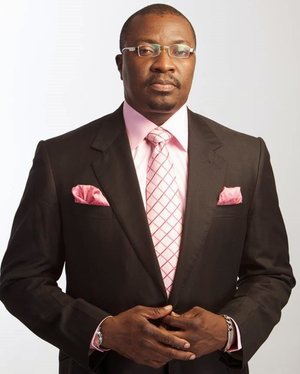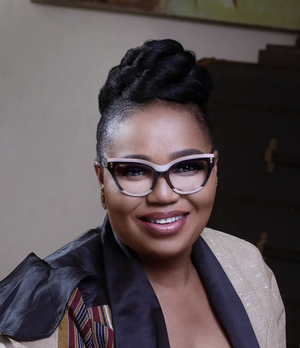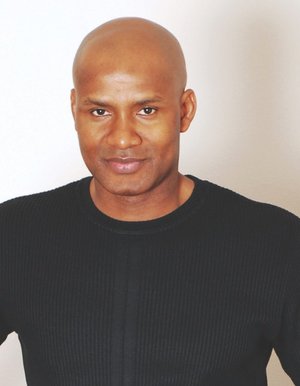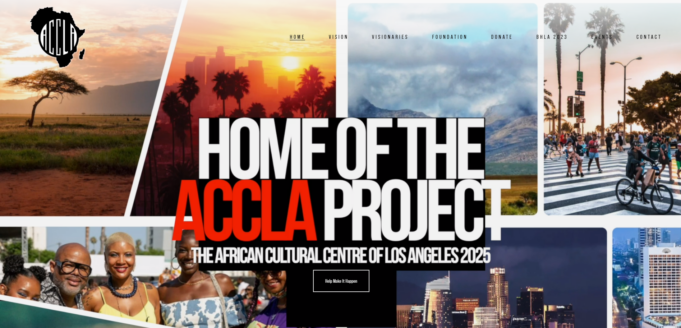LOS ANGELES—The Honorable Elijah Muhammad has declared, in an article titled “The Two Brothers,” that the Black man of America and the Black man of Africa must unite again. “The Black African, the Aboriginal Black people of the earth, are our real brothers. We are part of, and belong to each other,” The Honorable Elijah Muhammad wrote in an October 17, 1969 article in the Muhammad Speaks newspaper.

Well, a new venture by Nigerian founders of the African Cultural Centre of Los Angeles (ACCLA) is an example of Mr. Muhammad’s divine words. The center will be a new hub for teaching the richness and diversity of the African diaspora relating to Black people in America, Afro-Latinos, Caribbeans, and Africans residing in the Greater Los Angeles area. Organizers launched the effort with a city-wide reception at the Los Angeles City Club on June 16.
“This will be another way for us to communicate with people, for us to tell our stories. When there is communication before you know it, we will be united,” stated Folshada Balogun, founding board member of the African Cultural Centre of Los Angeles and president/CEO of Black History and Lifestyle Awards (BHLA).
“Hey! What are we, American, or we are African? If you have that Black in you, you are Black, and we are one,” Ms. Balogun told The Final Call.
Adai Lamar, radio personality at 102.3 FM/KJLH Radio, emceed the event, which was blessed by the Gabrielino Band of Mission Indians. Also featured were the East African Student Dance Association of the University of California Los Angeles, and comedian and actor Ali Baba (Atunyota Alleluia Akpobome).
Walter Njboke, ACCLA co-founder of and board member of the BHLA, who has lived in the U.S./Los Angeles for over two years now has always envisioned a philanthropic venture to unite the Indigenous populations, he said.
Ms. Balogun is very passionate about Africans celebrating their heritage, culture, and achievements because for so many years, in our community, she doesn’t believe they get celebrated enough, and Mr. Njboke agrees. Many people feel that Africans in the United States should just be content with their achievements and accomplishments and just be grateful to be in the U.S., but they disagree, he said.

“She said, we have to start celebrating ourselves, because if we don’t, nobody will,” Mr. Njboke told The Final Call. Strife exists between Africans on the continent and in the diaspora due to misconception and misunderstanding, he added.
“It is also lack of communication,” said Ms. Balogun, who informed that the center will bring over 50 countries together, and serve as a learning point. “If you don’t want to go to school, fine! You can learn something that can be useful to yourself,” she stated. Plans for the center include courses such as, how to do “tie and die” clothing, modeling, braiding, and more.
The cultural center will provide a space to dialogue, deliberate, gain an understanding, and create ways to uplift each other, or the misunderstanding will only continue, explained Mr. Nboke. He also attributes problems among various Black and African groups to a lack of education.
A lot of Black people in America have a different idea of how Africans from Africa this day and age, perceive them, stated Mr. Njboke. “We don’t think less of them. We just believe we are all in this struggle together, though they were here before us. Without them, without the struggles like Dr. Martin Luther King, Malcolm X, had to go through, I don’t think we’d be where we are today,” he explained.
The key is to remember these struggles and acknowledge those who paved the way in order to be able to move forward, he continued, and that is why they are pressing strongly for the establishment of the ACCLA, said Mr. Njboke.
Tanya McKenzie serves as Los Angeles County Commissioner of Alcohol and Other Drugs for District 2 and works to solve the drug and alcohol issues in the community. She thinks the effort is empowering in a way that can help others actualize their ideas.
What’s so important about the center is others may have had an idea for something like the ACCLA, but because of fear or some other reason, didn’t bring it forth. Getting it this far empowers people to not be afraid of their own ideas or to bring them forward, she explained.

“I really feel like it gives us an opportunity to have a place where people go to get good information. Just like when someone may get in trouble for disrespecting another culture, the Jewish culture, their repentance is having to go to the Jewish center, right?” said Ms. McKenzie.
“So, is that something we can then incorporate when we feel like people have done us wrong or been disrespectful to our culture? … that is as much a museum as any other culture’s museum,” she told The Final Call.
Identity is crucial, said Hector Perez Pacheco, Commissioner for L.A. County’s Community Action Board for the 1st District. His belief in unity and culture lays the base for his involvement and support of the ACCLA.
“Our ancestors have been in communication with our African brothers and sisters since the beginning of time. We would travel back and forth,” said Mr. Pachecho. The proof is that there is Africa corn in the west part of Africa, which comes from America, and has been there for centuries, way before the coming of Europeans to this hemisphere, he said.
“It is said within our culture that ‘Our Indigenous culture cures.’ So, having an African cultural center is an opportunity to cure the spirit,” stated Mr. Pacheco.
White people robbed the Indigenous people of the Western Hemisphere and their African brothers and sisters of their culture because, without it, there’s no culture, sense of purpose or identity, he said. That has left both open to manipulation and destruction, Mr. Pacheco pointed out. “But our commitment to developing an African cultural center is to make sure that our community is enriched by the beauty of language, of dance, of food, of clothing, of philosophy, of math, astronomy, and on and on and on.”
Plans are in the works to secure a space to build out or build the African Cultural Centre Los Angeles from the ground up, and no target date has been set yet, according to Mr. Njboke, but what they are sure of now is the next Black History and Lifestyle Awards (BHLA), which occurs every February, said Ms. Balogun.

BHLA began in 2022 in Nigeria and honors and commemorates the struggles, sacrifices, and extraordinary acts of service made by individuals from the African diaspora throughout history and in modern times. According to organizers, BHLA celebrates Black excellence across industries by honoring leaders in the sports, healthcare, politics, and tech industries while providing Black-owned businesses with a marketplace platform. Award events are held in Lagos, Nigeria, the UK, and Los Angeles.
The two-day event is set for 2024, and the goal is to bring as many communities together in a celebration to include a fashion show, and network where Black-owned entrepreneurs can unite, said Ms. Balogun. It aims to have 53 African countries and local Los Angeles communities showcase their self-manufactured products, she said.
“If you have an idea and a dream and something that you feel is going to benefit the community, there’s no reason to wait, because the moment you keep waiting, people’s lives are changing,” said Mr. Njboke. For more information visit, www.africanculturalcentreofla.org.













